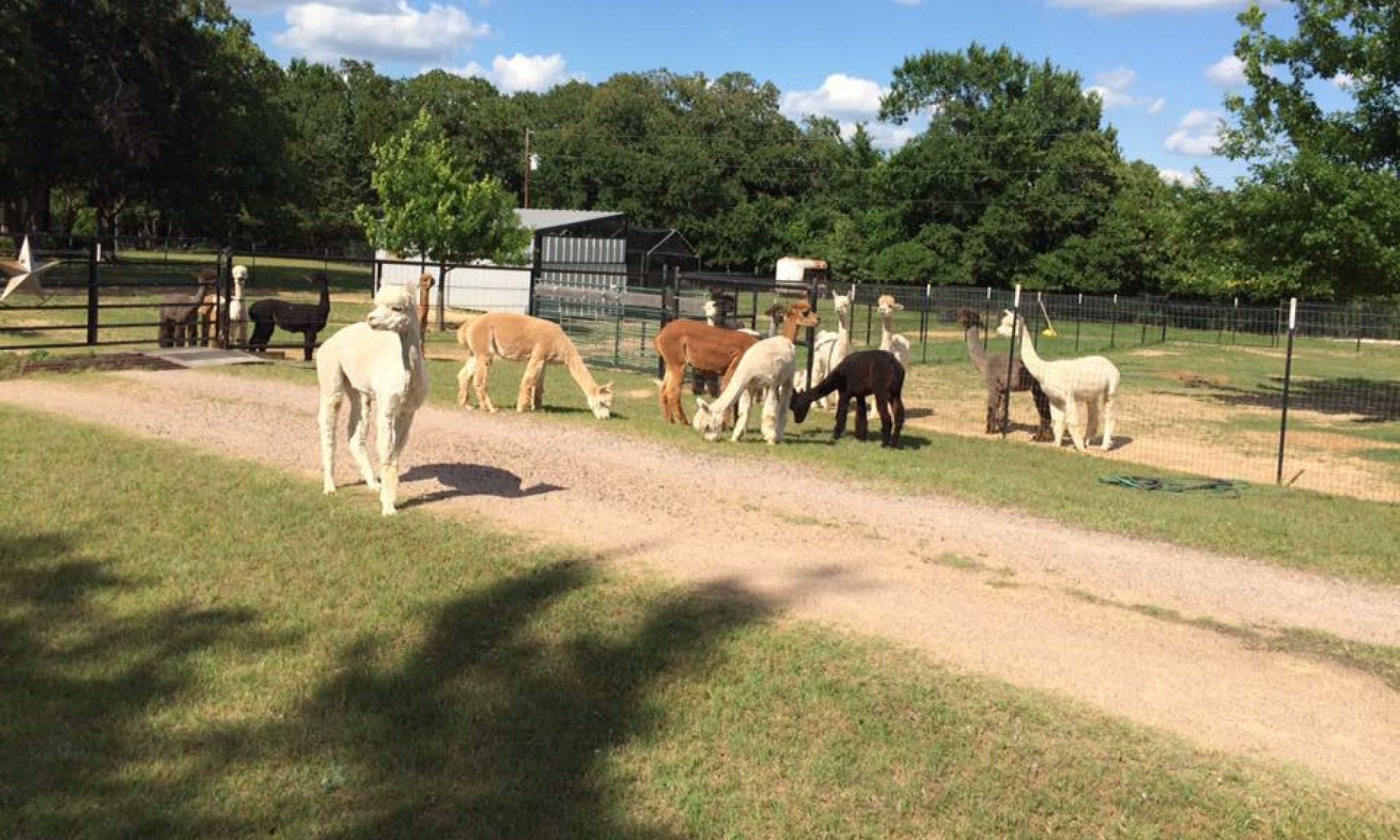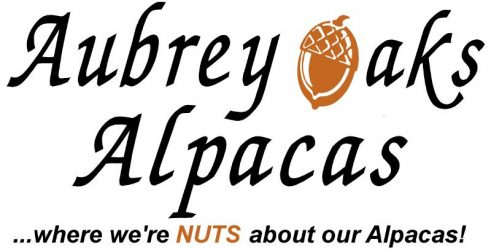For the most part Alpacas tend to use a common alpaca manure pile. Males tend to be much better than females at maintaining a compact manure pile. Non-pregnant females have deep seated instinct to spread their urine out over a larger area. This is so that a male would be able to smell the pheromones in their urine and know that they need to be bred. This instinct still kicks in even if there is no male for 100 miles.
Have a plan for what to do with your scooped poop piles. Keeping the pile away from growing grass is a smart choice—we learned the hard way. We sometimes sell it by the bag or truck load. Gardening neighbors love it, and we’re fortunate to have some so we don’t ever have the pile get too big. They gift us with farm fresh eggs in return!
Poop Tools
We use close tined plastic shrub rakes to scoop.
We use Home Depot big scoops for collecting poop.
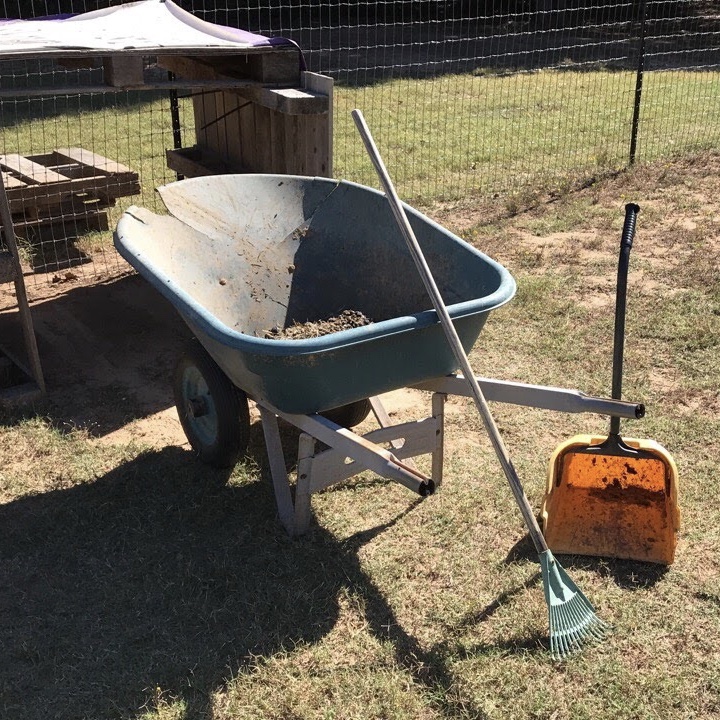
Buy a flat front wheelbarrow to dump or you will end up with a broken front like we have.
We have a young LGD that’s likes to chew on everything. Including poop rake handles. As she got larger she even got them off of the tops of her dog houseboat or the poop barrow garage. So we have begun to use this plastic pipe solution to keep her from getting to them.
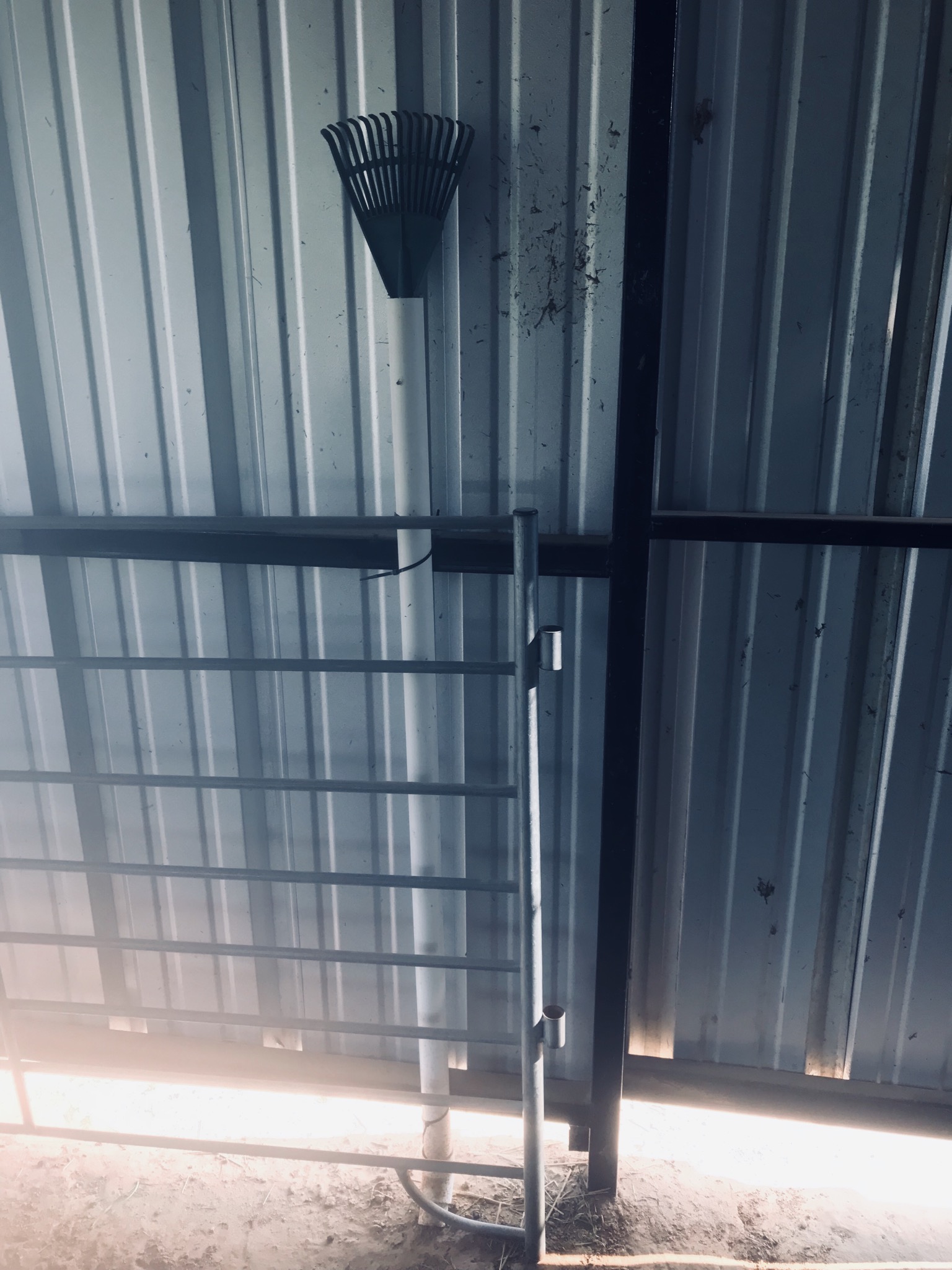
Controlling Parasites & Flies
Be aware that bio security between parasite infected pens is transmitted through shoes and tools. Use separate equipment for each pen.
Some people have, and we have in the past, used food grade diatomaceous earth around poop piles to keep parasites under control. There are varying opinions about this practice. We just feel it best to scoop more frequently than spend money on a product that can be made useless by urine. While we’re on the subject of DE, note that it *only* works when it is dry due to the laws of physics. DE mechanically abrades an insect’s cuticle as it has tiny, sharp protrusions. When covered with water, they are no longer abrasive. Consequently we do not recommend that anyone give it as a dietary supplement. This issue, and the potential for aspiration, make it something to be avoided in our book.
While some allow guinea hens to help control insects, they have a relatively small effect on microscopic gut worms.
Scoop daily. Yes daily, but if not then at least every two days. Especially if it is damp. You’re helping to keep parasites down in your pastures and your animals healthy.
Pooping In the Shed
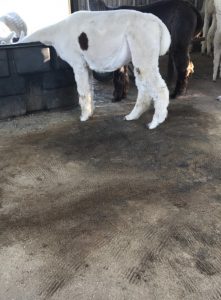
Since Alpaca Manure is relatively odorless you will find that the urine is the worst offender. We utilize pin bedding pellets that are available at your farm supply store—Tractor Supply Co., Atwood’s, etc. They help sop up the urine so you don’t have a goopy pile of mud.
While we don’t see a lot of flies around our poop piles or dump piles, they can be a nuisance in the shed. There are many ways to control them. Live fly parasites. Baited catch traps, disposable and otherwise. Sticky bars. Sprays. (If you use these be sure to cover water buckets and get Alpacas away before doing so.) The best thing we have ever seen is a long white sticky tape mounted around the top of a shed. Once it gets full you dispose of it and stretch a new section. Here’s the link: Fly tape
If you have problems with flies on the Alpaca we use SWAT. It is a small jar of fly repellent and worth the money.
Poop Observations
The shape of Alpaca manure is rarely an indicator of parasite issues. It is a better indication that the animal’s hydration, feed and rumen are either perfectly in balance, or may need some attention.
For example, elongated beans may be an indication of low hydration. Another possibility might be too much sand in the digestive system—if you live on sandy soil as we do.
Dung Beetles
Depending upon your area you will begin to notice piles of dirt around your Alpaca manure piles. The longer you leave it alone (not recommended) the more dirt will appear. That is because of the industrious Dung Beetle. It’s a handsome little creature with bright metalic-colored green wings and a copper color top. It’s about the size of a quarter.
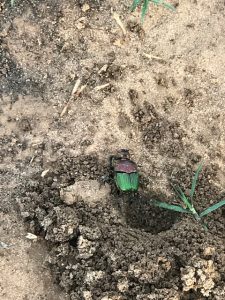
Of course, the more it buries, the less you have to scoop. And this also means it is fertilizing your grass for you. Unfortunately you are also raking up a lot of soil as well as poop.
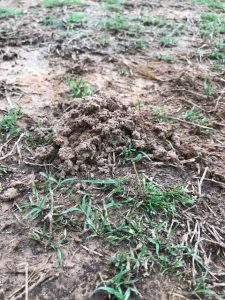
Read next: Halters, Leads and Training
